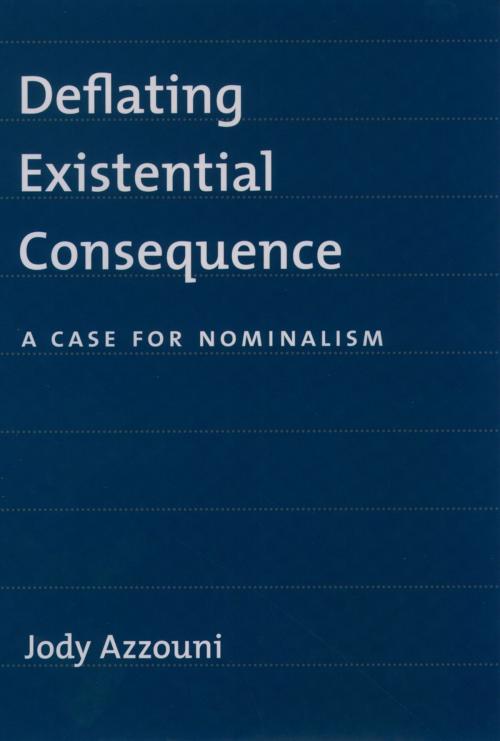Deflating Existential Consequence
A Case for Nominalism
Nonfiction, Religion & Spirituality, Philosophy, Logic| Author: | Jody Azzouni | ISBN: | 9780190289454 |
| Publisher: | Oxford University Press | Publication: | January 8, 2004 |
| Imprint: | Oxford University Press | Language: | English |
| Author: | Jody Azzouni |
| ISBN: | 9780190289454 |
| Publisher: | Oxford University Press |
| Publication: | January 8, 2004 |
| Imprint: | Oxford University Press |
| Language: | English |
If we must take mathematical statements to be true, must we also believe in the existence of abstracta eternal invisible mathematical objects accessible only by the power of pure thought? Jody Azzouni says no, and he claims that the way to escape such commitments is to accept (as an essential part of scientific doctrine) true statements which are about objects that don't exist in any sense at all. Azzouni illustrates what the metaphysical landscape looks like once we avoid a militant Realism which forces our commitment to anything that our theories quantify. Escaping metaphysical straitjackets (such as the correspondence theory of truth), while retaining the insight that some truths are about objects that do exist, Azzouni says that we can sort scientifically-given objects into two categories: ones which exist, and to which we forge instrumental access in order to learn their properties, and ones which do not, that is, which are made up in exactly the same sense that fictional objects are. He offers as a case study a small portion of Newtonian physics, and one result of his classification of its ontological commitments, is that it does not commit us to absolute space and time.
If we must take mathematical statements to be true, must we also believe in the existence of abstracta eternal invisible mathematical objects accessible only by the power of pure thought? Jody Azzouni says no, and he claims that the way to escape such commitments is to accept (as an essential part of scientific doctrine) true statements which are about objects that don't exist in any sense at all. Azzouni illustrates what the metaphysical landscape looks like once we avoid a militant Realism which forces our commitment to anything that our theories quantify. Escaping metaphysical straitjackets (such as the correspondence theory of truth), while retaining the insight that some truths are about objects that do exist, Azzouni says that we can sort scientifically-given objects into two categories: ones which exist, and to which we forge instrumental access in order to learn their properties, and ones which do not, that is, which are made up in exactly the same sense that fictional objects are. He offers as a case study a small portion of Newtonian physics, and one result of his classification of its ontological commitments, is that it does not commit us to absolute space and time.















